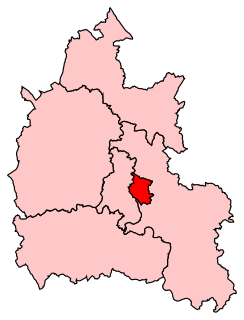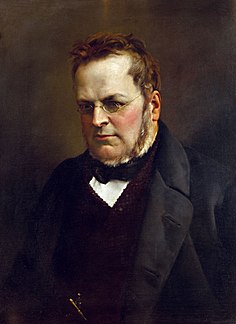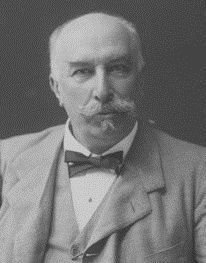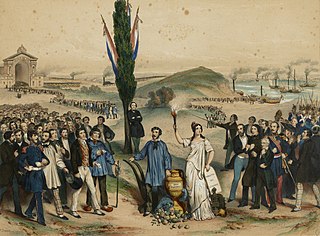
The 1874 United Kingdom general election saw the incumbent Liberals, led by William Ewart Gladstone, lose decisively, even though it won a majority of the votes cast. Benjamin Disraeli's Conservatives won the majority of seats in the House of Commons, largely because they won a number of uncontested seats. It was the first Conservative victory in a general election since 1841. Gladstone's decision to call an election surprised his colleagues, for they were aware of large sectors of discontent in their coalition. For example, the nonconformists were upset with education policies; many working-class people disliked the new trade union laws and the restrictions on drinking. The Conservatives were making gains in the middle-class, Gladstone wanted to abolish the income tax, but failed to carry his own cabinet. The result was a disaster for the Liberals, who went from 387 MPs to only 242. Conservatives jumped from 271 to 350. For the first time the Irish Nationalists gained seats, returning 60. Gladstone himself noted: "We have been swept away in a torrent of gin and beer".

General elections were held in the Netherlands on 3 July 1918. They were the first elections held after a series of reforms that introduced universal male suffrage and pure proportional representation, replacing the previous system using first-past-the-post voting in single member constituencies. This change was known as the Great Pacification, which also included the introduction of state financing of religious schools, and led to the start of consociational democracy.

General elections were held in the Netherlands on 5 July 1922. They were the first elections held under universal suffrage, which became reality after the acceptance of a proposal by Henri Marchant in 1919 that gave women full voting rights. Almost all major parties had a woman elected. The number of female representatives increased from one to seven. Only the Anti-Revolutionary Party principally excluded women from the House of Representatives. Another amendment to the electoral law increased the electoral threshold from 0.5% to 0.75%, after six parties had won seats with less than 0.75% of the vote in the previous elections.

Parliamentary elections were held in Poland on 25 September 2005. Thirty million voters were eligible to vote for all 460 members of the lower house, the Sejm and all 100 members of the upper house, the Senate.

Oxford East is a constituency represented in the House of Commons of the UK Parliament by Anneliese Dodds of the Labour Party.

A legislative election to elect the members of the 11th Imperial Council were held in Cisleithania, the northern and western ("Austrian") crown lands of Austria-Hungary, on 14 and 23 May 1907. They were the first elections held under universal male suffrage, after an electoral reform abolishing tax paying requirements for voters had been adopted by the Council and was endorsed by Emperor Franz Joseph earlier in the year. However, seat allocations were based on tax revenues from the States.

Full general elections were held in Belgium on 14 October 1894, with run-off elections held on 21 October 1894.

Full general elections were held in Belgium on 2 June 1912.
Elections for the Constituent Assembly were held in Denmark on 5 October 1848. Of the 158 seats in the Assembly, 114 were elected and 44 appointed by the King. An additional 31 candidates were to come from the Duchy of Schleswig but were not elected due to the First Schleswig War.

General elections were held in Belgium on 10 December 1857, the first full general elections since 1848. The elections were called by royal order of 12 November 1857, dissolving the Chamber of Representatives that had convened in a new session only two days earlier.

A referendum on the electoral law was held in Italy on 18 April 1999. Voters were asked whether they approved of replacing the mixed-member proportional representation electoral system with one based solely on single-member constituencies, with the 25% of seats instead allocated to the second-placed in the constituencies with the most votes. The proposal was supported by larger parties, but opposed by smaller ones. Although the proposal was approved by 91.5% of voters, turnout was only 49.6%, resulting in the referendum being invalidated as the threshold of 50% was not passed.

General elections were held in Italy on 27 January 1861, with a second round on 3 February. The newly elected Parliament first convened in Turin on 4 March 1861, where, thirteen days later, it declared the unification of the country as the Kingdom of Italy.

General elections were held in Italy on 29 October 1882, with a second round of voting on 5 November. The "ministerial" left-wing bloc emerged as the largest in Parliament, winning 289 of the 508 seats.

General elections were held in Italy on 6 November 1904, with a second round of voting on 13 November. The "ministerial" left-wing bloc remained the largest in Parliament, winning 339 of the 508 seats. The papal ban on Catholics voting was relaxed for the first time, and three Catholics were elected.

General elections were held in Italy on 7 March 1909, with a second round of voting on 14 March. The "ministerial" left-wing bloc remained the largest in Parliament, winning 329 of the 508 seats.

Parliamentary elections were held in Iceland on 27 October 1923. Voters elected all 28 seats in the Lower House of the Althing and eight of the fourteen seats in Upper House. The Citizens' Party, a loose collection of conservatives, emerged as the largest party in the Lower House, winning 16 of the 28 seats.
General elections were held in Luxembourg on 28 September 1848. They were the first direct elections to the Chamber of Deputies. Doctrinaire Liberals, who had been in power since 1841, lost the election to progressive Liberals and Catholics who were supportive of the new constitution.

Federal elections were held in Switzerland on 27 October 1872. The Radical Left remained the largest group in the National Council.

Federal elections were held in Switzerland on 26 October 1902. The Free Democratic Party retained its majority in the National Council.

Federal elections were held in Switzerland on 29 October 1911. The Free Democratic Party retained its majority in the National Council.






















